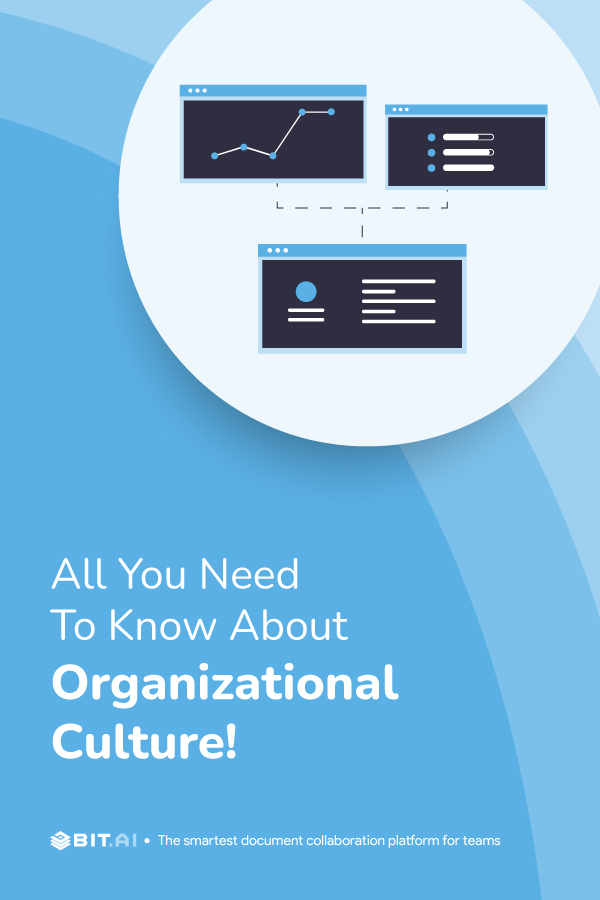Welcome to the vibrant world of organizational culture, where the invisible threads of values, behaviors, and norms shape the very essence of a company’s existence. Just like the conductor of an orchestra, organizational culture orchestrates the symphony of success, resonating through every department and individual. From the startup’s innovative playground to the corporate giant’s bustling hive, organizational culture holds the power to fuel greatness, define identity, and inspire generations of employees.
Today, we embark on a journey to unravel the mystery of organizational culture, exploring its profound impact on employee engagement, innovation, and productivity.
What is Organizational Culture?
Organizational culture is the collective soul of an organization, interwoven into its practices. It encompasses the shared beliefs, values, and assumptions that guide the actions and decisions of its members. It’s not just the ping-pong tables in the break room or the fancy office perks; it’s the fabric shaping how people interact, collaborate, and contribute.
Like a gentle breeze that molds the sand dunes, organizational culture subtly sculpts behaviors, fostering a sense of belonging and purpose. The unspoken language binds employees together, fueling their motivations and influencing their every move.
A culture that encourages open communication, trust, and collaboration cultivates a sense of ownership, igniting employees’ passion and commitment. When employees genuinely believe in the mission and values of their organization, they become the catalysts for innovation and change.
Take Pixar Animation Studios, where a culture of creativity and collaboration birthed animated masterpieces, shaping the very landscape of the film industry. Organizations with a vibrant and inclusive culture become magnets for top talent, fostering an ecosystem where productivity soars and success becomes second nature.
As we navigate the fast-paced tides of the modern business landscape, it becomes increasingly evident that organizational culture is not an afterthought but a strategic imperative. In a world where companies rise and fall like shooting stars, cultivating a positive and inclusive culture sets the true champions apart.
In the upcoming sections, we will delve deeper into organizational culture’s core elements and benefits, exploring how leadership, communication, and diversity play pivotal roles in shaping a thriving culture. So buckle up, and let us embark on this captivating journey to uncover the secrets of organizational culture and unlock the full potential of your organization.
What is The Importance of Organizational Culture?
In the bustling world of organizations, a hidden force shapes their identity, performance, and success: organizational culture. Picture it as the heartbeat of an organization, the intangible yet powerful essence that defines its character. The importance of organizational culture cannot be overstated, as it lays the foundation for a harmonious and thriving environment. Some of its importance are:
1. Attracting the Best Talent
 A positive organizational culture acts as a magnetic force, attracting the brightest minds in the industry. Imagine a workplace that fosters collaboration, encourages innovation, and values diversity. Talented individuals gravitate towards such environments, seeking opportunities to unleash their potential and contribute meaningfully. In fact, employees are 3.8x more engaged if their organizational culture is positive. Also, 7 out of 10 employees are likelier to leave an organization due to weak culture.
A positive organizational culture acts as a magnetic force, attracting the brightest minds in the industry. Imagine a workplace that fosters collaboration, encourages innovation, and values diversity. Talented individuals gravitate towards such environments, seeking opportunities to unleash their potential and contribute meaningfully. In fact, employees are 3.8x more engaged if their organizational culture is positive. Also, 7 out of 10 employees are likelier to leave an organization due to weak culture.
The benefits of having highly skilled employees extend beyond their impressive credentials. These individuals bring fresh perspectives, drive creativity, and inspire their peers, raising the bar for excellence within the organization. They become the driving force behind innovation, pushing boundaries and fueling growth.
2. Increasing Employee Retention
A strong organizational culture plays a pivotal role in promoting employee loyalty. Employees who feel a deep sense of connection and belonging are likelier to stay committed to their organization. Imagine a workplace that nurtures trust, provides ample opportunities for development, and recognizes employees’ contributions. This creates a powerful bond between the organization and its employees.
Retaining experienced staff brings invaluable benefits. These seasoned professionals possess a wealth of institutional knowledge and expertise, becoming mentors to newer employees. Their wisdom and experience are crucial for maintaining organizational stability, fostering seamless knowledge transfer, and ensuring business continuity.
Read More: 9 Effective Employee Retention Strategies You Need To Implement!
3. Boosting Employee Engagement and Performance
Organizational culture and employee engagement go hand in hand. A culture that encourages open communication values employee opinions, and promotes a healthy work-life balance creates an environment where employees feel connected and motivated. When employees are engaged, they invest their energy, creativity, and passion into their work. This leads to improved performance and productivity across the board.
4. Building a Strong Brand Identity
When a business embodies its core values and fosters a culture aligned with them, it cultivates a distinct brand image. Customers, clients, and stakeholders perceive the organization not only for its products or services but also for the values and principles it upholds.
Take the example of Company A, which prioritizes sustainability and environmental consciousness within its culture. By aligning its organizational practices with these values, Company A has successfully positioned itself as an eco-friendly and socially responsible brand. As a result, customers are drawn to their products and feel a deeper connection, becoming loyal advocates of the brand.
5. Enhancing Business Outcomes
The culture of an organization also has a profound influence on overall business success. When employees are aligned with the organization’s mission, values, and goals, they work cohesively towards achieving shared objectives. This synergy translates into improved business outcomes.
Hence, organizational culture is the invisible force that permeates every aspect of an organization’s existence. In today’s fiercely competitive landscape, organizations prioritising and nurturing their culture reap the rewards of a motivated workforce and a thriving business. So, let’s dive deeper into the next section, exploring the qualities defining a remarkable organizational culture. Buckle up, and let’s embark on this enlightening journey together.
Must Read: Organizational Ethics: Definition, Importance & Real-World Examples!
What Are The Qualities of Organizational Culture?
Imagine stepping into an organization where every day feels like a breath of fresh air. A place that not only values your skills and contributions and takes your well-being to heart. This is the magic of a strong organizational culture. The invisible force shapes an organization’s identity, guiding its values, beliefs, and behaviors. Today, we embark on a journey to explore the qualities that define an exceptional organizational culture, from its focus on well-being to its commitment to innovation, communication, and upskilling opportunities.
1. Focus on Well-being
In a world where work can often dominate our lives, a culture that prioritizes well-being is a rare gem. Such an organization understands the importance of work-life balance, ensuring employees have time for personal pursuits and rejuvenation.
Promoting flexible working hours, remote work options, and initiatives like wellness programs and mental health support creates an environment where employees feel cared for and valued. Take, for instance, a tech company that offers yoga classes during lunch breaks, allowing employees to recharge and reduce stress.
2. Transparency
Transparency is the cornerstone of trust within an organization. It involves open and honest communication, where information flows freely and decisions are shared openly. In such a culture, employees are not left in the dark; they are informed and involved in decision-making.
By fostering transparency, organizations build trust among their workforce, enabling them to feel connected and engaged. Consider a company that holds regular town hall meetings, where executives share updates on company performance and address employees’ questions and concerns.
3. Innovation
 Innovation is the stepping stone to progress, and a thriving organizational culture embraces it wholeheartedly. This culture encourages employees to think outside the box, experiment with new ideas, and challenge the status quo. It embraces change and cultivates an environment where continuous improvement is celebrated.
Innovation is the stepping stone to progress, and a thriving organizational culture embraces it wholeheartedly. This culture encourages employees to think outside the box, experiment with new ideas, and challenge the status quo. It embraces change and cultivates an environment where continuous improvement is celebrated.
As a result, innovation becomes ingrained in the organization’s DNA. Did you know that companies with a strong culture of innovation have 30% higher growth than organizations that don’t have it? This statistic illustrates the power of fostering an innovative mindset.
4. Good Communication
Open and effective communication is the glue that holds an organization together. A culture that values good communication provides various channels for dialog, ensuring that information flows seamlessly between all levels of the organization. It encourages active listening, seeks feedback from employees, and promotes collaboration. Think of a customer service company that conducts regular team huddles and encourages employees to share their insights and suggestions. This kind of communication strengthens relationships, improves problem-solving, and enhances overall organizational performance.
5. Opportunities for Upskilling
A great organizational culture invests in its employees’ growth and development. It recognizes that the organization’s success is intertwined with its workforce’s professional growth. By providing training and development programs, mentoring opportunities, and career advancement pathways, organizations empower their employees to reach their full potential.
They foster a learning culture where acquiring new skills and knowledge is celebrated and supported. For example, a consulting firm offers regular workshops on emerging industry trends and provides mentorship programs to help employees sharpen their expertise.
Therefore, the qualities of a strong organizational culture are multifaceted and intertwined. A workplace that values its employees holistically becomes a magnet for talent, retains its top performers, and achieves outstanding results.
But how can an organization develop such a culture? Stay tuned for our next section, where we delve into the strategies and practices that can help you build a strong organizational culture from the ground up.
How To Develop a Strong Organizational Culture?
Think of a workplace where employees are not mere cogs in a machine but cherished contributors to a shared vision. In this enchanting world, gathering employee feedback becomes a cherished ritual, concerns are met with open ears, effective communication weaves its way through every interaction, and leaders lead by example, inspiring others to follow in their footsteps. Buckle up because we’re about uncovering the secrets of building an organizational culture that leaves everyone spellbound.
1. Gathering Employee Feedback
To build a culture that resonates with employees, it’s vital to understand their thoughts, needs, and aspirations. One way to achieve this is by conducting surveys or questionnaires allowing employees to anonymously express their opinions. Additionally, organizing focus groups or town hall meetings provides a platform for open discussions where employees can voice their concerns and ideas directly. For example, a technology company regularly conducts “culture pulse” surveys to gauge employee sentiment and identify areas for improvement.
2. Listening to Concerns and Ideas
Gathering feedback is just the first step; actively listening to employees is crucial. Leaders must create a safe space where individuals feel comfortable sharing their concerns, knowing they will be heard without fear of retribution. By demonstrating genuine interest and empathy, leaders can build trust and encourage a culture of open communication. Companies like Zappos, renowned for their exceptional customer service, actively listen to their employees’ ideas. They have even implemented a program called “Zappos Insights,” where employees can share innovative concepts and solutions.
3. Effective Communication
 Clear and transparent communication is the lifeblood of a strong organizational culture. Establishing consistent channels for communication, such as regular team meetings, company-wide updates, and accessible feedback mechanisms, fosters transparency and inclusivity. Encouraging open dialog ensures that information flows freely, empowering employees to make informed decisions. Buffer, a remote-first company, maintains a strong culture by using transparent communication tools like Slack and ensuring everyone can access critical information.
Clear and transparent communication is the lifeblood of a strong organizational culture. Establishing consistent channels for communication, such as regular team meetings, company-wide updates, and accessible feedback mechanisms, fosters transparency and inclusivity. Encouraging open dialog ensures that information flows freely, empowering employees to make informed decisions. Buffer, a remote-first company, maintains a strong culture by using transparent communication tools like Slack and ensuring everyone can access critical information.
Read More: Communication Plan: What is it & How to Create it? (Steps included)
4. Leading by Example
Leadership plays a pivotal role in shaping organizational culture. By setting a positive tone from the top, leaders inspire others to embody the desired values and behaviors. Leading by example demonstrates integrity, accountability, and a commitment to ethical conduct.
Developing a strong organizational culture requires a multifaceted approach. Remember, creating a strong culture is an ongoing commitment that requires consistent effort and adaptability. Now, let’s move on to the next section, where we’ll explore strategies specifically tailored for organizations navigating the challenges and opportunities of remote work.
Tips For Shaping a Strong Organizational Culture in a Remote Environment
In today’s ever-evolving work landscape, the concept of remote work has transformed from a mere trend to a fundamental shift in how organizations operate. The freedom to work from anywhere has brought countless benefits, from increased productivity to a wider talent pool. However, it has also presented a new set of challenges, particularly when it comes to shaping a strong organizational culture.
Creating a robust organizational culture has always been crucial to any company’s success. It sets the foundation for shared values, beliefs, and behaviors that drive employees’ sense of belonging and purpose. In a remote environment, where physical proximity is replaced by virtual connections, nurturing a strong culture becomes even more vital. Here are some tips for shaping a strong organizational culture in a remote environment.
1. Make Values the ‘North Star’
To shape a strong organizational culture in a remote environment, it is essential to establish and communicate core values that serve as the ‘North Star’ for your company. These values act as a compass, guiding employees’ behaviors and decision-making processes, regardless of their physical location.
For example, let’s consider a company that values innovation and encourages employees to think outside the box. By consistently highlighting and rewarding creative problem-solving, they create a culture where employees feel empowered to take risks and explore new ideas, even when working remotely.
2. Use the Right Tech Tools
 Technology is the backbone of remote collaboration, and using the right tools is paramount. One such powerful tool is Bit.ai. Bit provides a seamless platform for creating and sharing documents and knowledge. With features like real-time collaboration, interactive documents, and easy content embedding, Bit empowers remote teams to collaborate effectively and build a knowledge repository that can be accessed from anywhere. For example, imagine creating a comprehensive employee handbook on Bit.ai that incorporates interactive training modules and videos, ensuring that all team members have easy access to crucial information.
Technology is the backbone of remote collaboration, and using the right tools is paramount. One such powerful tool is Bit.ai. Bit provides a seamless platform for creating and sharing documents and knowledge. With features like real-time collaboration, interactive documents, and easy content embedding, Bit empowers remote teams to collaborate effectively and build a knowledge repository that can be accessed from anywhere. For example, imagine creating a comprehensive employee handbook on Bit.ai that incorporates interactive training modules and videos, ensuring that all team members have easy access to crucial information.
Using appropriate technology, such as Bit.ai, you can bridge the virtual gap and create an environment that fosters collaboration, creativity, and productivity.
3. Identify Employee Challenges
Remote work brings unique challenges, such as feelings of isolation, difficulty separating work and personal life, and potential communication gaps. It is crucial to identify and address these challenges to shape a strong organizational culture.
For instance, a company might organize regular virtual team-building activities, create dedicated spaces for employees to connect casually, and implement flexible work hours to accommodate different time zones. Organizations can foster a culture that supports their overall well-being by understanding and empathizing with remote employees’ challenges.
4. Place Employee Wellbeing at the Forefront
Prioritizing employee well-being is paramount in a remote environment. Organizations must go beyond traditional benefits and proactively address the unique challenges that arise when work and personal life intertwine within the same physical space.
Encouraging work-life balance by promoting self-care and setting clear boundaries is essential. Providing access to mental health resources and support, such as counseling services or mindfulness programs, can significantly impact employees’ overall well-being and foster a culture that values their holistic development.
5. Prioritize Good Communication
Effective communication is crucial for any team, and it becomes even more important in a remote setup. Clear and regular communication channels build trust, alignment, and a shared sense of purpose, all of which contribute to a strong organizational culture.
Leaders can establish weekly video conferences to provide updates, clarify goals, and celebrate achievements to achieve this. Encouraging open and transparent communication, where all team members have a voice, creates an inclusive culture that values diverse perspectives.
Shaping a strong organizational culture in a remote environment requires intentional effort and a focus on core aspects such as values, technology, employee challenges, well-being, and communication. Now, let’s move on to the conclusion, where we’ll summarize the key points and reiterate the significance of shaping a strong organizational culture.
Conclusion
And there you have it, folks! We’ve journeyed through the realms of organizational culture, exploring its intricate depths and uncovering its hidden treasures. Hopefully, you’ve gathered a chest full of knowledge about the importance of organizational culture and its remarkable qualities and even learned a thing or two about nurturing it.
Armed with this newfound wisdom, it’s time to embark on your quest to build a strong organizational culture. Remember, culture is not something you stumble upon—it’s something you actively shape and cultivate. So, grab your coffee and head over to Bit.ai, the ultimate tool for collaboration and documentation. It’s time to take feedback, collaborate seamlessly, and build a culture that would envy even the organizations with the best culture!
Further Reads:
- Organizational Change Management: Definition, Process, Models & More!
- Best 7 Organizational Structures to Drive Business Growth
- Need Theory: What Is It & How To Implement It In The Workplace?
- 10 Corporate Wiki Best Practices and How Implement Them?
- Diversity Training in The Workplace: The 6 Types of Training!
- Organizational Challenges and How to Overcome Them?


